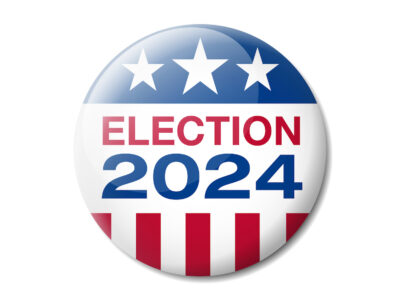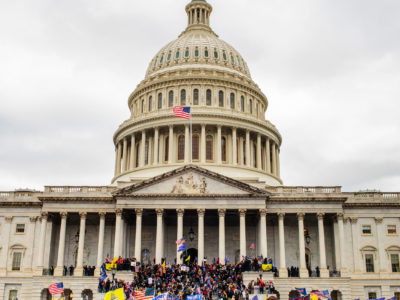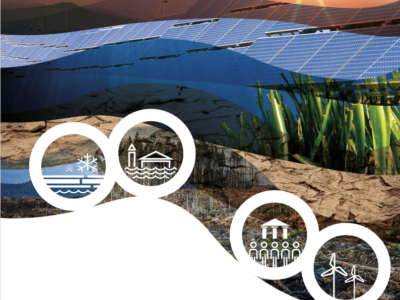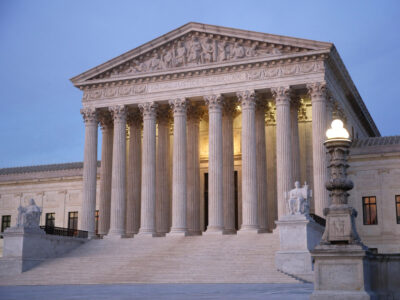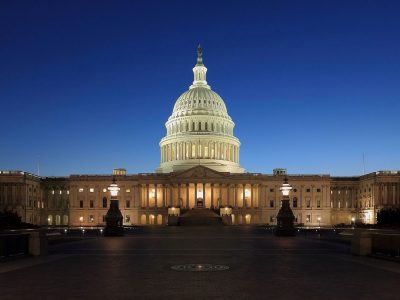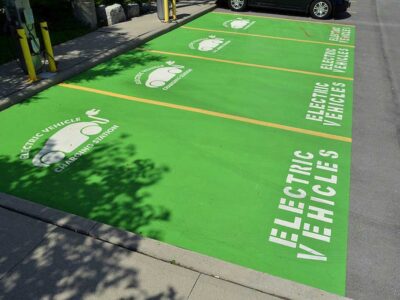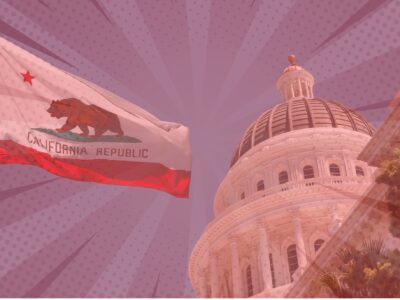Climate Change
Evolving Energy Positions, 2016-2024
The national debate over climate and energy has shifted since Trump’s first run in 2016.
Coal, once a political flash point, has almost disappeared as an issue, with oil and gas production in unchallenged first place for Republicans. Clean energy subsidies, a side-issue in 2016,, have now taken center stage, while EPA regulations get much less attention. The one thing that remains unchanged is the gulf between the parties.
CONTINUE READINGThe Battle for Congress: Key U.S. House Races in California
These elections could prove critically important to how much the next President can reshape energy and environmental policy.
These are key races for control of the House: if they did all flip and Democrats held their remaining seats, Hakeem Jeffries would be the next Speaker. The battle for control of the U.S. House is going to be very tight. Democrats need to pick up only four seats to flip control – something that will be especially important for them if Trump wins and Republicans win the Senate as expected. Especially in that scenario, control of the House will have a big impact on climate and energy policy, one way or the other. It doesn’t look like climate or energy are major issues in the key U.S. House races in California. Only one candidate (Dave Min) devotes significant attention to them. To avoid unintentionally distorting anyone’s views, these descriptions are taken straight from their campaign websites.
CONTINUE READINGEarth system tipping events now seem inevitable – what does this mean for climate governance?
Building meaningful earth system governance creates multiple new research challenges
A tipping point is a system threshold beyond which change becomes self-perpetuating until a qualitatively different stable state is reached. For example a rainforest turns into a grassland, or an ice sheet melts completely. Such shifts are non-linear, and practically irreversible. Fears that growing human impacts might push aspects of the global climate past such …
CONTINUE READINGCalifornia’s Electric Car Culture
The state has been pushing EVs for over thirty years, with huge progress in the past five years.
California has been a leader in clean cars — the result of a long history of regulatory efforts. Here’s how we got where we are, and what will need to happen going forward.
CONTINUE READINGThe Case that Wouldn’t Die
The Juliana plaintiffs make a final effort to resurrect their case.
The district judge contemplates a wide-ranging trial about broad climate and energy policies, after which she would opine on their legality. The Supreme Court will likely think that putting an immense swathe of government policy on trial also violates the separation of powers — especially in a case where they are deeply skeptical of the underlying constitutional claim.
CONTINUE READINGWhy the 2024 House Races Matter So Much for Energy and Climate Policy
Those races get a lot less attention than elections for the Senate, but they’re equally important.
Unified government would give Trump a much freer hand. Republicans are likely to win the Senate. If they also win the House, he wouldn’t have to worry about annoying congressional investigations and could use the Senate reconciliation procedure to gut environmental agencies and federal support for clean energy.
CONTINUE READINGElectric Shared Mobility:
Program Design Elements Can Produce More Equitable, Durable, and Successful Projects
Shared mobility—an umbrella term for any transportation mode shared among multiple passengers—has the potential to accelerate transportation electrification, air quality, and greenhouse gas reduction goals, meet the needs of underserved communities that most lack mobility access, and advance broader mobility equity goals. CLEE’s report, Electric Shared Mobility: California Lessons Learned for Equity in Program Design, …
Continue reading “Electric Shared Mobility:”
CONTINUE READINGThe Harris-Trump Debate and Environmental Policy
In the ABC News debate, both candidates were asked directly, “What would you do to fight climate change?” Fracking and energy policy got most of the focus.
While abortion and immigration took center stage during last night’s presidential debate in Philadelphia, climate change and energy policy were referenced throughout the more than ninety minutes, in stark contrast to that Biden-Trump debate in June in which climate change was largely relegated to one question. From the very beginning of the debate, Trump attempted …
Continue reading “The Harris-Trump Debate and Environmental Policy”
CONTINUE READINGEnvironmental Lawyering Today
If you’d like to defend the environment as a lawyer, you should take a broad view of what that means.
To law students: The Earth not only needs a good lawyer, it needs many kinds of good lawyers doing many kinds of work. Whatever area of law interests you most, there’s no reason why you can’t be one of them.
CONTINUE READINGEnvironmental Bills at the 10-yard Line
Now that the legislative session has wrapped, the ball is in the Governor’s hands. Here are some of the environmental bills he could sign by September 30.
The California legislative session wrapped up on Saturday, August 31st at midnight, with legislators working until the clock struck twelve. As usual, it was an exciting night to watch. Unlike most years, there seemed to be more of a rush at the end to reach agreement on some of the major issue areas, as well …
Continue reading “Environmental Bills at the 10-yard Line”
CONTINUE READING



